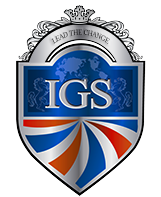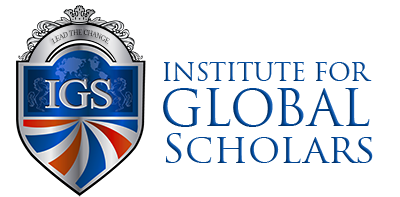Qualification Content
Learners selecting this qualification must take at least two of the five mandatory units and two further units from either the remaining core units or from the optional units listed below.
| Unit Name | Unit Aims | Credits | Mandatory |
|---|---|---|---|
| Strategic Planning | The aim of this unit is to develop the knowledge, understanding and skills necessary to develop an organisational strategic plan. | 15 | Yes |
| Finance for Strategic Managers | The learners will develop knowledge, understanding and skills that will enable them to analyse internal and publicly available financial information. This will help to inform strategic decision making. | 15 | Yes |
| Research for Strategic Development | The aim of this unit is to develop the knowledge, understanding and skills required to carry out research to meet the needs of strategic business management. | 15 | Yes |
| Organisational Behaviour | The aim of this unit is to help learners develop an understanding of how organisational behaviour, structure, culture, motivation, creativity and leadership impact on an organisation’s effectiveness and efficiency. | 15 | Yes |
| Personal Development for Leadership and Strategic Management | This unit aims to help learners develop their own personal leadership and management skills in the context of the creation and achievement of organisational vision and strategic direction. | 15 | Yes |
| International Business Environment | The unit will enable learners to explore the changing international business environment and develop knowledge and understanding of how organisations respond. | 15 | No |
| Developing Organisational Vision and Strategic Direction | To enable learners to improve their knowledge and understanding of how organisations develop vision and strategic direction. The unit may be of particular interest for learners aiming for leadership roles in either private or public sector organisations. | 15 | No |
| Human Resource Management | To develop skills and knowledge in the field of human resource management strategy. To look at contemporary issues which affect human resource strategy within organisations. | 15 | No |
| Project Management | To understand the process of identifying appropriate and feasible projects, and to be able to initiate and start a project. To be able to manage, monitor and control a project, including assessing, managing and controlling project risks and issues, project and team management and change management. To be able to evaluate the success or failure of a project. | 15 | No |
| Strategic Resource Management | To explore the mechanisms for managing resources to achieve the business objectives of organisations. To understand the roles and strategies used in acquiring, managing, and developing human, physical and technological resources. To understand the importance of marketing in achieving business aims and objectives, and the roles, strategies and processes used to manage the marketing function | 15 | No |
| Risk Management | To raise business risk awareness and develop knowledge and understanding in the assessment, monitoring and control of business risks. To enable the learner to develop an appreciation of the implications of business risks. | 10 | No |
| Managing Stakeholder Engagement | The aim of the unit is to enable the learner to develop the knowledge and understanding required to engage with stakeholders and to learn how to manage stakeholders in projects and organisations. | 10 | No |
| Corporate Communication Strategies | To understand the importance of corporate communication and how it links to corporate objectives. To conduct an audit internal and external corporate communications, and to be able to develop an effective corporate communications strategy. | 10 | No |
| Leading Organisational Equality and Diversity | The aim of this unit is to enable the learner to develop an understanding of the importance of managing equality and diversity within the organisation and to understand how to lead the approach to equality and diversity within an organisation. | 10 | No |
| Sustainable Business Strategy | To raise awareness of sustainable development issues and how they impact on the strategic development of the business. | 10 | No |
| Managing Quality and Service Delivery | This unit aims to introduce the learner to the delivery of excellent customer service. The learner will also develop knowledge and understanding required for quality measurement and management of service delivery (for public service or healthcare management programmes the unit can be delivered in context). | 10 | No |
| International Finance | The unit will allow learners to consider the importance of International Accounting Standards and the international financial environment for decision making within businesses and organisations. Particular attention is paid to analysing the role of international financial markets in creating opportunities and risks for organisations, especially those operating in a multinational context. Learners will gain experience in assessing strategic options and making appropriate recommendations. | 15 | No |
| Quantitative Methods | This unit will enable learners to further develop understanding and skills in the application of quantitative methods appropriate to support decision-taking in organisations. | 15 | No |
| Strategic Marketing | This unit enables learners to develop knowledge and understanding of marketing at a strategic level and how this is applied in practice including developing a marketing strategy. | 15 | No |
| Corporate Communication Strategies | This unit will enable learners to develop knowledge and understanding of the importance of corporate communications and the link with corporate objectives. Learners will have the opportunity to develop skills in auditing corporate communications and planning a corporate communication strategy. | 15 | No |
| Strategic Human Resource Management | The aim of this unit is to help learners acquire knowledge and understanding of human resource management strategy and its impact on the efficiency of an organisation. | 15 | No |
| Managing Continuous Organisational Improvement | To enable learners to develop the knowledge, understanding and skills required to create a culture of continuous improvement in an organisation. The learners will have the opportunity to develop the skills required to plan organisational change. | 15 | No |


